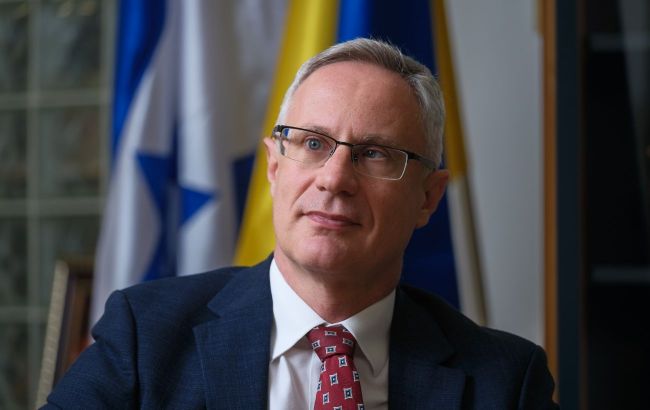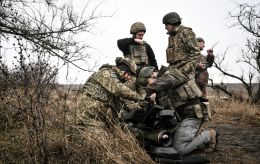Putin's role in Iran-Israel conflict: Ambassador assesses
 Photo: Michael Brodsky, Israeli Ambassador to Ukraine (Vitalii Nosach, RBC-Ukraine)
Photo: Michael Brodsky, Israeli Ambassador to Ukraine (Vitalii Nosach, RBC-Ukraine)
Israel's Ambassador to Ukraine, Michael Brodsky, stated that he is not aware of any real assistance that Moscow may have provided to Tehran during the 12-day war between Israel and Iran. However, he noted that the Kremlin's statements demonstrate clear double standards.
Due to rising oil prices triggered by the fighting in the Middle East, many were quick to name Russia among the beneficiaries, arguing that higher oil prices mean more revenue for the Kremlin, including funds to wage war against Ukraine. Brodsky was asked whether he had any knowledge of Russia supporting Iran during the recent escalation.
In response, the Israeli ambassador pointed out that the conflict lasted only 12 days, so the spike in oil prices was short-lived and later returned to pre-war levels. According to him, neither Israel, Ukraine, nor Western countries are interested in rising oil prices, so a long-term effect wasn’t expected.
"As for Russia, they issued a formal condemnation of Israel. But I'm not aware of any real assistance they provided to Iran during this episode of the war," the diplomat said.
Brodsky also responded to Vladimir Putin's claim that Israel is supposedly a "Russian-speaking country."
"There are not two million Russian speakers in Israel. There are about one million people from the former Soviet Union and post-Soviet space. Most of them do speak Russian. But if we look at the number of Russian citizens, there are probably just tens of thousands in Israel, maybe even fewer. So calling Israel a Russian-speaking country is a significant exaggeration," he said.
When asked why Israel still doesn't have a clear stance on Russia, Brodsky replied that "Israel's position is clear and has remained unchanged since the beginning of the war in Ukraine."
"Regarding Israel's operation against Iran, the Russian leadership's statements clearly show double standards - especially when they speak about attacks on sovereign nations," the ambassador added.
He also condemned the visit of Hamas representatives to Moscow.
"We are very closely monitoring contacts between Russia and the leaders of Hamas and Iran. Frankly, we don't like it. The visit of Hamas leaders to Moscow after October 7 is seen by us as indirect support for terrorism, and we’ve stated that publicly," Brodsky emphasized.
At the same time, the ambassador noted that dialogue with Russia continues, although it is difficult, and sometimes common ground can still be found.
In conclusion, when speaking about Iran's future, Brodsky said that it would be nice "to see an Iran without Khamenei. We want a different country - a democratic one that recognizes Israel. But for now, there are no real prerequisites for regime change," he concluded.
Israel–Iran war
Tensions between Iran and Israel sharply escalated after a series of strikes began on the night of June 13. At that time, the Israeli Air Force launched a large-scale operation, targeting Iranian military and nuclear facilities.
In response, Tehran launched a series of attacks on Israeli cities, including Jerusalem, Tel Aviv, and Haifa.
Since then, the two countries exchanged strikes daily.
Soon after, on the night of June 22, US aircraft carried out strikes on three nuclear facilities located in Fordow, Natanz, and Isfahan.
On June 24, Israel officially agreed to a US-brokered ceasefire proposal with Iran.

